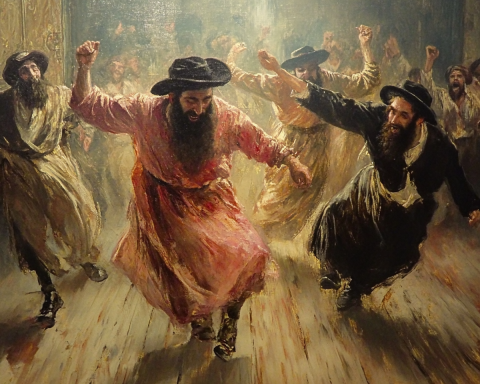Greater Israel and the Conquering Messiah
Primary tabs

A profound shift in the global perception of Israel — and perhaps of the Jewish people as a whole — is underway. After the catastrophe European Jews endured under Hitler during World War Two, they evoked widespread pity, compassion, and sincere sympathy on a global scale. This moral capital facilitated the establishment of the State of Israel. The Holocaust, or Shoah — signifying the horrors and persecutions suffered by Jews — served as the foundation for the universal consensus: after such suffering, the Jewish people unquestionably deserved their own state. This sacred status of the Holocaust became a cornerstone of Jewish identity and moral capital.
The philosophers of the Frankfurt School proclaimed: henceforth, one must think “from Auschwitz.” This meant that philosophy, politics, and morality were to take into account the scale of crimes committed by Europeans (primarily Germans) against Jews. Western civilization and humanity at large were now called upon to repent.
This framework rested on the image of Jews as victims, elevating them to the status of a sacral people. Others were urged to repent and never forget their guilt. Any hint of anti-Semitism, let alone attempts to revise the sacral status of Jews or the metaphysics of the Holocaust, was met with legal repercussions.
However, Israel’s increasingly hardline policies toward Palestinians and neighboring Muslim populations gradually eroded this image — at least in the eyes of Middle Eastern peoples, who, it must be noted, bore no responsibility for the crimes of European Nazis. On the contrary, the Zionists’ dismissive attitude toward the local population provoked direct protests and, eventually, the anti-Zionist Intifada.
The self-perception of Israelis and Jews in the diaspora also began to change. A growing tendency emerged to display strength, power, and the ambition to create a “Greater Israel.” Concurrently, messianic motifs intensified: the anticipation of the imminent arrival of the Messiah (Moshiach), plans to rebuild the Third Temple (which would entail demolishing the Muslim holy site, the Al-Aqsa Mosque), the expansion of Israel’s territories “from sea to sea,” and the final resolution of the Palestinian question (even including calls for deportation and genocide of Palestinians). These ideas found support among figures like Benjamin Netanyahu and ministers such as Itamar Ben-Gvir and Bezalel Smotrich. They were openly articulated in works like The King’s Torah by Yitzhak Shapira, and in the sermons of rabbis such as Kook, Meir Kahane, and Dov Lior. Strategically, they were outlined as early as the 1980s in an article by Ariel Sharon’s advisor, General Oded Yinon. Yinon’s plan proposed the overthrow of all established Arab regimes with nationalist Baathist ideologies, plunging the Arab world into bloody chaos, and establishing Greater Israel.
Following a decade of the Arab Spring and particularly after Hamas’ terrorist attack on Israel in October 2023, these plans appear to be materializing at an accelerated pace.
Netanyahu leveled Gaza, mercilessly killing hundreds of thousands of civilians. This was followed by an attack on Lebanon and the elimination of Hezbollah’s leadership. Next came exchanges of missile strikes with Iran and active preparations for war, including attacks on Iranian nuclear facilities. Subsequently, there was an invasion of the remaining Golan Heights and strikes on Syria. A month prior, Bezalel Smotrich declared that Damascus would become part of Israel, and Ben-Gvir hinted openly at the demolition of Al-Aqsa. With the fall of Bashar al-Assad, the last Baathist regime crumbled, plunging the Arab world into chaos.
Greater Israel and the extermination of Palestinians are becoming a reality before our eyes.
Here is what is critical: the policies of right-wing Zionists are effectively turning the page on the Holocaust. The moral capital of victimhood has been entirely expended. Israel used it to fuel its rise to power — its current formidable and ruthless stature, akin to the Old Testament grandeur. Jews are no longer pitied; instead, they are either feared, hated, resented, or admired — but, in any case, acknowledged as a formidable and ruthless force.
Jewish identity has transformed.
No longer a symbol of humiliation and suffering, Jews are now seen as an exemplar of dominance and triumphant victory.
Thinking “from Auschwitz” is no longer necessary. Now, one must think “from Gaza.”
Jewish tradition contains prophecies of two Messiahs: the suffering one (Messiah ben Yosef) and the triumphant one (Messiah ben David). After the European Holocaust, the suffering Messiah, sacrificed as a victim, was emphasized. Now, this foundational gestalt is shifting, and the triumphant, attacking, and victorious Messiah is taking center stage.
This shift is most pronounced in Israel itself. But it is clearly not confined to Israel alone. The messianic archetype is changing among Jews worldwide.
In this context, Donald Trump — a staunch supporter of right-wing Zionism and a close ally of Netanyahu — comes to power in the United States. Much of his administration consists of Christian Zionists who are prepared to provide unwavering support to Israel. Once again, the capital of compassion has been converted into the capital of aggression.
This is extremely significant — and will only grow more so.
However, one must refrain from hasty conclusions, reactions, and judgments. The first task is to comprehend this state of affairs, to weave countless facts, events, and occurrences into a coherent and non-contradictory narrative.
